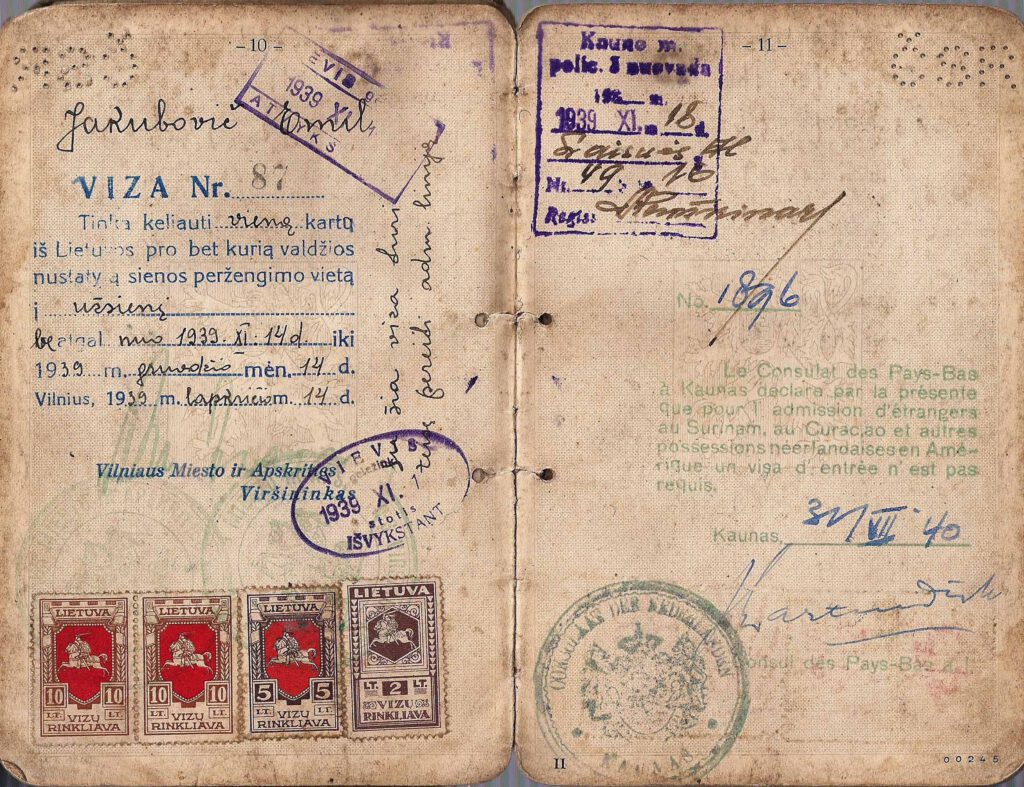Ever heard of a man called Jan Zwartendijk? We didn’t think so, but you should definitely know his name.
Walking around the Netherlands, it’s common to see statutes celebrating hereditary rulers and agents of colonialism. Yet, Dutch history remained suspiciously quiet about the Dutch man who saved more Jews than Oskar Schindler — eternalised in the Oscar-winning classic, Schindler’s List.
That is, until 2018 when Dutch writer Jan Brokken wrote “The Just”, plucking Jan Zwartendijk out of anonymity. In 2020, the first and only monument in The Netherlands in his memory was unveiled in Eindhoven.
From business director to consul
When World War II broke out in 1939, Zwartendijk was the head of the local Philips branch in Lithuania. As the Dutch consulate in the region was unoccupied, he was offered the job. Zwartendijk accepted the position, imagining he would only have to assist a few countrymen. Soon, however, he found himself in a position to help many escape a macabre fate.
Escaping Nazi persecution
After the Nazis invaded Poland, thousands of Jews fled to Lithuania. When the Baltic country was occupied by Germany and the Soviet Union 10 months later, Jewish refugees frantically looked for a way out.
A couple of Jews approached Zwartendijk asking him to make a note on their passports that travelling to the Dutch island of Curaçao required no travel document. This was only partially true, as permission from the island’s governor was also required.
But who was going to check the travel requirements for an obscure island, right? Luckily, nobody, so their bet paid off.

Distracting officers with technology
The success of these visas in enabling Jewish refugees to leave Lithuania spread the news about “Mister Radio Philips”, says The Guardian . The lines in front of Zwartendijk’s office grew so large that a Russian officer accused him of endangering public safety.
After being gifted the first-ever electric razor created by Philips, the officer let Zwartendijk carry on with his work. 🪒 During the demonstration, the officer is said to have declared it “a miracle” and gone his merry way.
Mortal danger
Russian officers weren’t the only risk Zwartendijk faced. In 1940, when he returned to the Nazi-occupied Netherlands, he found himself in mortal danger. During those years his secrecy was a matter of life and death.
Later on, it was modesty plain and simple. His son was quoted by The Guardian saying that his father never spoke about his deeds, and when it came up, he’d say that anyone in his position would have done the same. Unlikely. 🙅♂️
An unsung hero
Zwartendijk was never celebrated. Not even after the war ended and the horrors of the Holocaust were revealed to the larger public. Much to his frustration, he was actually reprimanded in 1964 by the Dutch government for not acting in accordance with consular rules.
The reproach came as the Dutch Foreign Ministry was annoyed when reports about the “Angel of Curaçao” started to circulate. Yes, you read that correctly.
Mr Philips’ final days
Zwartendijk spent his final days wondering whether the thousands of Jews he had given visas to managed to reach safety. In total, he had issued 2,139 visas, but in those days women and children travelled on male relatives’ documents. It is estimated that his work helped between 6,000 and 10,000 Jews escape.
READ MORE | “Mother of 1001 children”: the resistance heroine who saved thousands from the Nazis
In a heart-warming twist of fate — one day after his funeral, researchers confirmed that 95% of Mr Philip’s visa recipients had survived.
What are your thoughts on this story of “Mr Radio Philips” and his heroism? Tell us in the comments below!
Feature Image: Author Unknown/Wikimedia Commons/Public Domain-US
Editor’s Note: This article was originally published in October 2021, and was fully updated in May 2022 for your reading pleasure.

Slaap gerust Jan Zwartendijk. Many of us would like to think we would do the same if it fell to us to do it, but you stepped up and met the challenge.
If not for heroes like Zwartendijk , many more people would have perished. It is stories like this that really hit home.